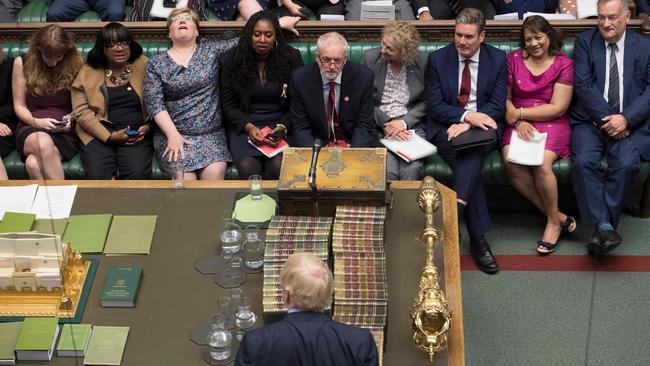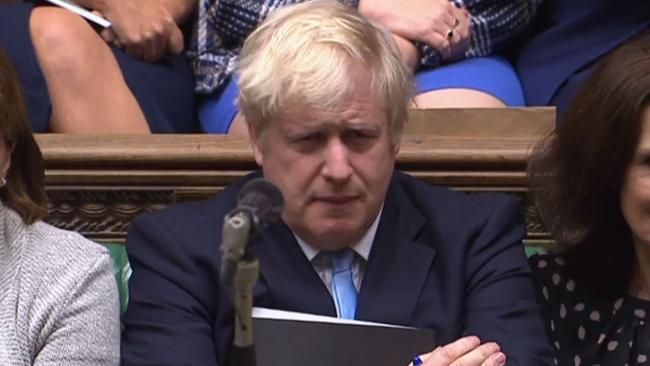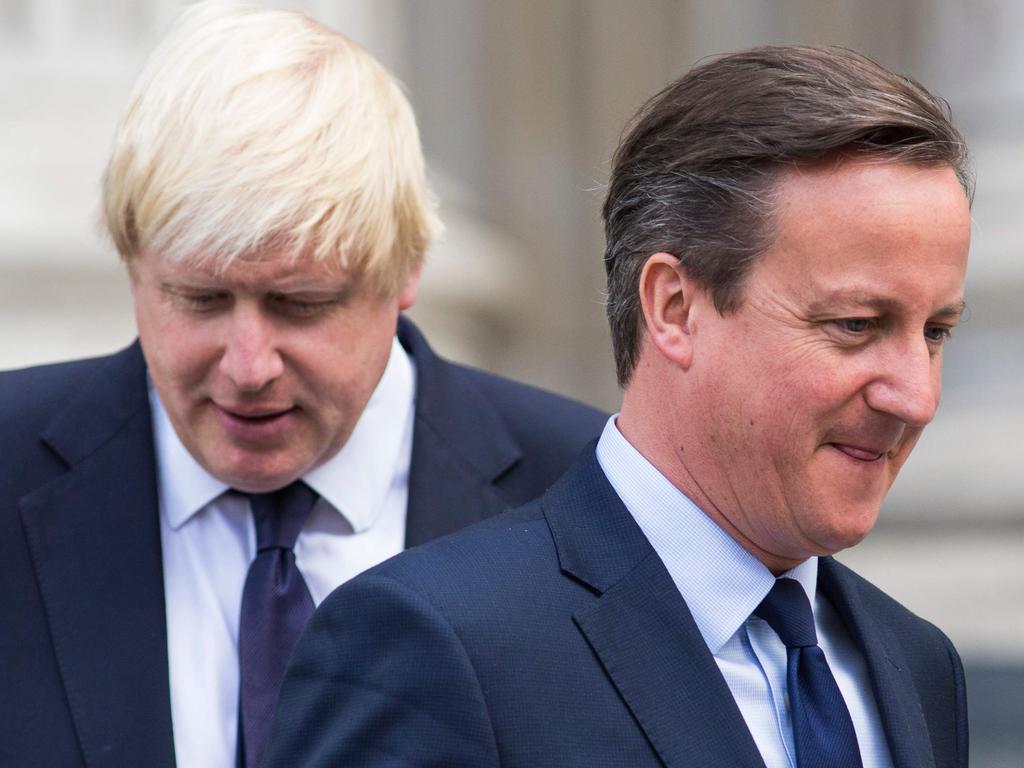Labour MPs offer backing to revised Brexit withdrawal deal
Boris Johnson’s hopes of getting a Brexit deal through the Commons given a boost by Labour.

Boris Johnson’s hopes of getting a Brexit deal through the House of Commons have been given a boost by Labour MPs who are indicating that they could back a new compromise.
The Prime Minister said that a “rough shape of a deal to be done” was emerging before his first meeting with Jean-Claude Juncker, the outgoing president of the European Commission, on Monday. He will also meet Michel Barnier, the EU’s chief Brexit negotiator.
The Times revealed yesterday that the DUP was shifting some of its red lines to unlock a deal with the EU. Critically, the Northern Irish party has privately indicated that it could accept regulatory checks in the Irish Sea and divergence from Britain with the consent of the province’s democratic institutions.
Mr Johnson said that he was hopeful about getting a new deal despite senior DUP figures, including its leader, Arlene Foster, and Sammy Wilson, its Brexit spokesman, playing down the concessions.

After an event in Rotherham on Friday local time, Mr Johnson said: “We are working incredibly hard to get a deal. There is the rough shape of the deal to be done.
“As some of you may have seen, I myself have been to talk to various other EU leaders, particularly in Germany, in France and in Ireland, where we made a good deal of progress. I’m seeing the president of the [European] Commission and the chief negotiator, Michel Barnier, on Monday and we will talk about the ideas that we’ve been working on and we will see where we get. I would say I’m cautiously optimistic.”
With at least some Tory Brexiteers irreconcilable to a repackaged version of Theresa May’s deal, Mr Johnson’s hopes rest on attracting more Labour support than his predecessor.
The Labour MPs Caroline Flint, Stephen Kinnock and Yvonne Fovargue, indicated that they could back the emerging compromise deal.
“We need to bring this process to a swift conclusion and to deliver the result of the referendum and all sides must be prepared to compromise,” Ms Fovargue said.
The Makerfield MP, who did not vote for Mrs May’s deal on the three times it was put to the Commons, added: “There are a number of Labour MPs who are committed to this process and want the chance to scrutinise and vote for a deal.”
Ms Flint, the MP for Don Valley who voted for Mrs May’s deal twice, said: “I think what we are hearing from the DUP and the Prime Minister is a willingness to compromise to get a deal. That will avoid most people’s worst outcome. There is a sizeable cross-party block building up [in support of a deal]”.
Stephen Kinnock, the MP for Aberavon, said that Mr Johnson would need to resurrect commitments offered by Mrs May to Jeremy Corbyn to secure support from across the political divide but also called for more compromise. “It’s very encouraging to see signs of the DUP edging towards compromise, which will boost support among Conservative MPs. But to maximise Labour support the Prime Minister must ensure that he includes the important commitments and concessions that were secured by the Labour negotiating team through the cross-party talks.
“If he is able to combine an acceptable position on the backstop with a declaration on the future relationship that protects jobs and livelihoods, he will have a package that can command a stable parliamentary majority.”
A spokeswoman for the European Commission said that Mr Juncker was “looking forward to working constructively” with the Prime Minister. She said the talks would be held at a “neutral location” rather than the British embassy or a commission venue. Mr Juncker will then address the European parliament in Strasbourg on Wednesday about the progress in the negotiations.
Ms Foster sought to preserve the DUP’s public position. “We are keen to see a sensible deal but not one that divides the internal market of the UK,” she said.
“We will not support arrangements that create a barrier to east-west trade.”
Mr Wilson went further in denying a shift. He told BBC Radio 4’s Today (Saturday) that the proposals ran “contrary to the position we’ve adopted throughout negotiations”.
He acknowledged, though, that his party had softened its language.
Despite Ms Foster’s and Mr Wilson’s insistence, party sources say that they could accept regulatory divergence with the “consent” of Northern Irish democratic institutions.
They made clear that this would not require the executive and assembly to be restored before October 31. “That could happen in the transition period,” they said. They were “positive” that a deal could be done.
The deal could find favour with the EU, which fears Northern Ireland becoming a back door into its single market for non-compliant goods if the UK signs trade deals with countries such as the US.
The Times





To join the conversation, please log in. Don't have an account? Register
Join the conversation, you are commenting as Logout